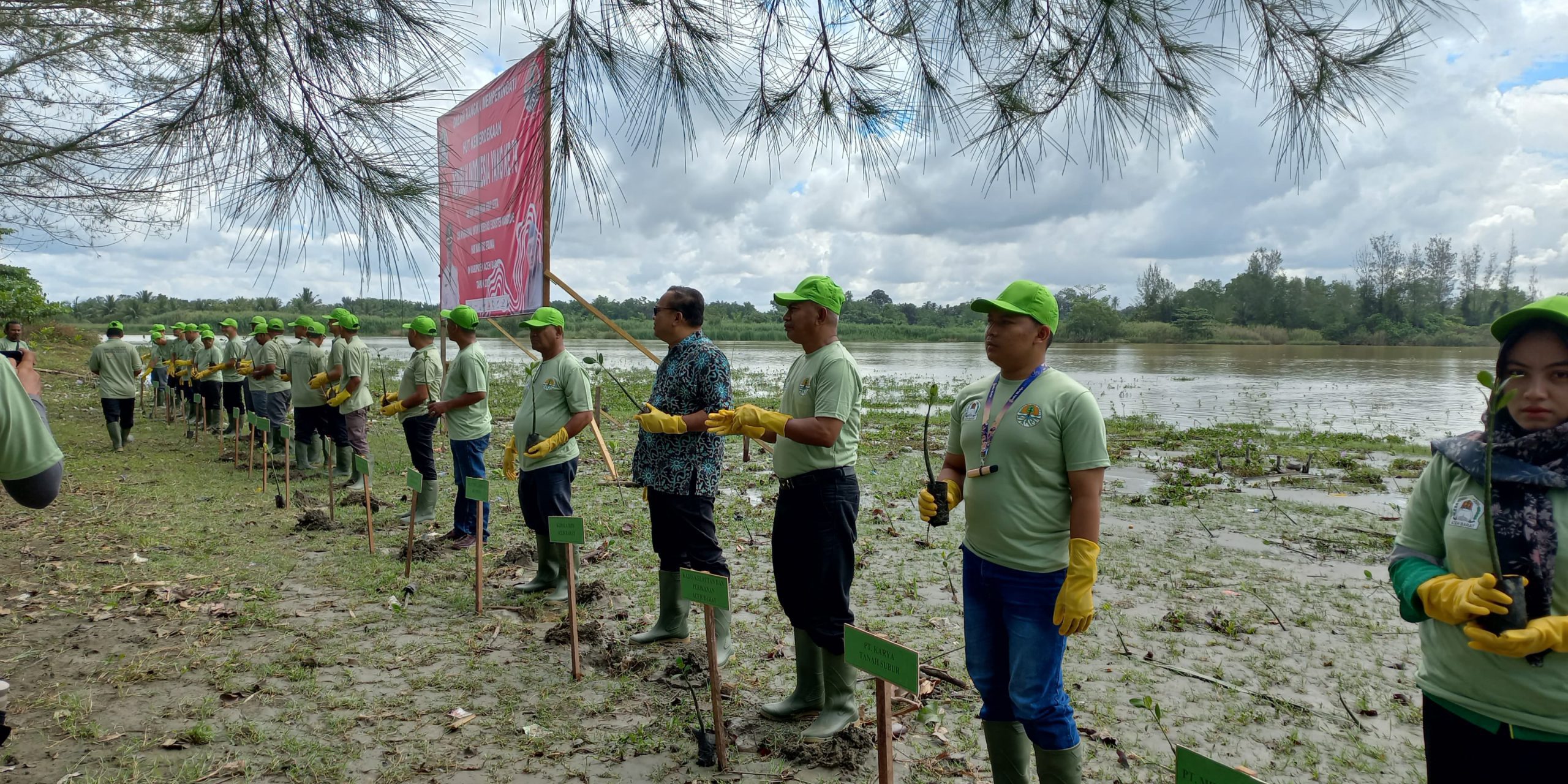Mangroves are a collection of trees that grow in areas affected by tides. They have various environmental benefits. One type that is often found is the mangrove tree, which grows in many coastal regions.
In Indonesia, mangroves are found in most coastal areas. Recently, there has been a decline in the growth of mangrove trees.; this is what underlies the conservation and corporate social responsibility (CSR) team of PT Astra Agro Lestari Tbk (Astra Agro) in the Aceh region to re-cultivate this mangrove plant.
Within the Astra Agro Group across the Aceh region are three separate areas: the southernmost part of Aceh, Aceh Singkil; the western part of Aceh in West Aceh; and the closest to Banda Aceh province, Aceh Jaya.
Since the beginning, Astra Agro Group has made mangroves the mainstay of its programmes to maintain ecological balance. This begins in Aceh Singkil, where PT Perkebunan Lembah Bhakti (PLB) has committed to carrying out mangrove rehabilitation on the coast of the company’s Ring 1 village, Kilangan Village. This has been carried out since 2018 and will be sustainable until 2025.
By collaborating with the Aceh Singkil Environment Office and supporting the Teluk Bayu Brackish Forest Farmers Group (KTHPTB), PT PLB recognises the importance of this commitment to positively impact the environment and provide economic and social benefits to the community.
‘Before the mangrove planting programme from PLB, the coastal area of Kilangan village was extremely barren. Thanks to the planting programme that has been running from 2018 up to 2024, our farmer groups and the community are very grateful. ‘The planting area has been fully planted now, marking 2025 as the end of the program,’ announced Irwan, Chairman of KTHPTB.
PT PLB has planted 40,900 mangroves up to 2023, and this will continue in the last years of closure in the planned location. PT PLB hopes that there will be another opportunity to preserve and cultivate mangroves in other locations as an action of the company’s responsibility to the environment and society.
Not only that, the mangrove planting initiative was echoed by PT Tunggal Perkasa Plantation 3 (TPP3), Astra Agro Group in Aceh Jaya. The first planting was carried out in 2023 on Krueng No beach, close to a busy road, marking the beach as an important area.
‘”As a matter of concern, we must act immediately, and the company shares the responsibility. This is PT TPP3’s Ring 1. The beach erosion can damage the road, affecting many people,” said Riduan Manik, Community Development Area Manager in Aceh.
Riduan continued that the rehabilitation programme at TPP3 will be sustainable, that it will help farmer groups so that it can be well maintained, and, of course, that it will help open up new livelihoods for them.
During the celebration of 79th Independence Day of the Republic of Indonesia in 2024, the West Aceh District Government planted 5,000 mangroves in the Meureubo River estuary area. This time, Astra Agro Group-West Aceh, PT Karya Tanah Subur, was one of the parties involved in this activity.
Bukhari, Head of the West Aceh District Environment and Hygiene Office (DLHK), explained that mangrove planting is an effort to save the environment from the threat of river erosion and coastal abrasion and to support the economy of the community that looks for shellfish and crabs in the river, considering that the location has often been used as a source of local economy.
In line with Bukhari, Ashar Khoirurrozi, Corporate Social Responsibility (CSR) Assistant of PT KTS, as the company’s representative, said that PT KTS is very proud to be able to join all parties involved in this planting initiative that has so many benefits.
According to him, mangrove planting is not only a form of concern for the preservation of nature but is also one step in environmental conservation efforts, maintaining coastal and marine ecosystems and habitats for various marine life.
‘This is a good start for us; of the 5,000 mangrove trees planted, PT KTS contributed 1,200 mangrove trees. Later, we are also committed to making this planting programme sustainable,’ Ashar concluded.
Ecosystem balance is the main commitment of the Astra Agro group to running a sustainable business process. Astra Agro continues to reinforce its commitment to maintaining harmonisation with the community through a public contribution roadmap with various CSR programs based on four main pillars: economic, Health, Education, and Environmental.
Many factors cause the decline in mangrove growth, such as the lack of public knowledge about mangrove benefits and how to cultivate them.
By making mangrove rehabilitation a mainstay of protecting the environment, Astra Agro also hopes to introduce more about mangroves through education, knowledge, and experience, as well as guidance to the community about mangrove forests that adjoin the sea, beaches, and marine biota.
Disclaimer
This article may contain copyrighted material, the use of which may not have been pre-authorized by the copyright owner. This material is made available for the purpose of giving information and knowledge. The material contained on the Astra Agro website distributed without profit. If you are interested in using copyrighted material from this material for any reason that goes beyond ‘fair use’, you must first obtain permission from the original source










